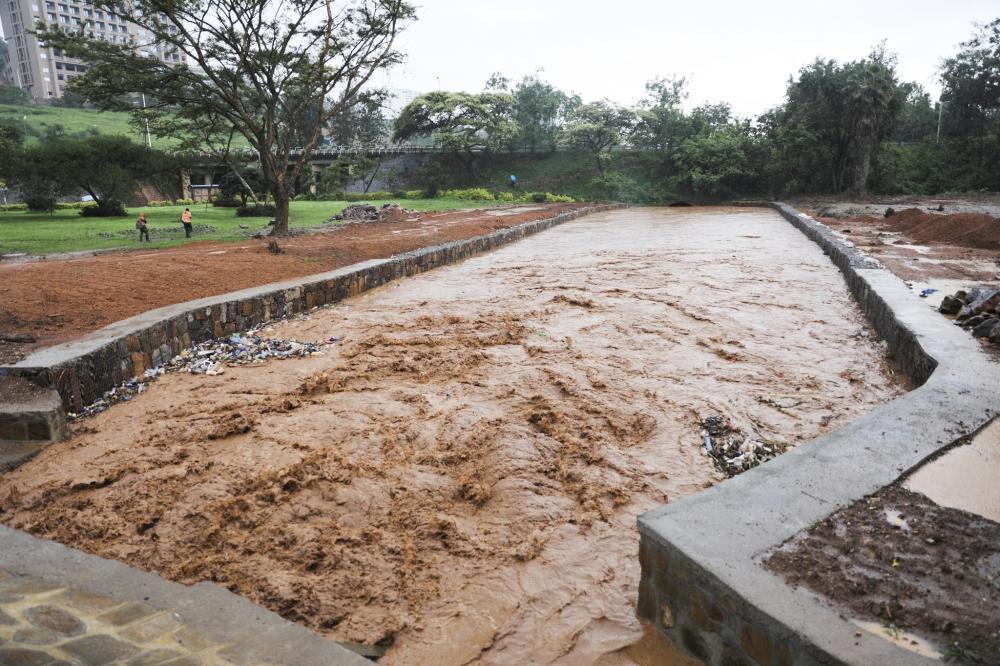Africa-Press – Rwanda. The government has identified a funding gap of $7.1 billion (Rwf 9 trillion) in order to meet its climate action targets under the Paris Agreement by 2030. The country plans to invest a total of $11.04 billion (Rwf 14 trillion) to reduce carbon emissions by 4.6 million tonnes, The New Times has learnt.
This gap was revealed during the Kigali Climate Talks, which took place on May 9, where stakeholders gathered to discuss Rwanda’s efforts to update its Nationally Determined Contributions (NDCs), a key part of the Paris Agreement.
NDCs outline each country’s plan to reduce national emissions and adapt to climate change, in line with the goal of limiting global temperature rise to well below 2 degrees Celsius, with efforts to keep it within 1.5 degrees.
The Ministry of Environment calculated the investment gap by excluding the costs for completed projects, ongoing projects initiated before 2020, and tentative future projects. The country’s climate action plan comprises 557 specific projects and technical assistance activities to meet its updated NDCs.
These include 88 planned projects worth $2.3 billion, 190 ongoing projects valued at $3.6 billion, 48 indicative projects totaling $1.1 billion, 15 completed projects costing $54 million, and 216 projects currently without funding.
The distribution of ongoing and planned projects reflects Rwanda’s strategic focus on various sectors: 43.2% are in energy, 24.5% in transport, 9.8% in water supply, 7.1% in sanitation, 4.7% in agriculture, 2.7% in integrated water resources management, and 4.4% in urbanization and rural settlements.
Minister of Environment Jeanne d’Arc Mujawamariya reiterated Rwanda’s strong commitment to the Paris Agreement’s climate goals and the country’s long-term vision of becoming a developed, carbon-neutral, and climate-resilient economy by 2050.
The country aims to reduce greenhouse gas emissions by 38%, which is equivalent to a reduction of 4.6 million tonnes of carbon emissions, with a significant portion of the reductions coming from the agriculture (49%), energy (34%), waste management (14%), and industrial (3%) sectors.
Mujawamariya acknowledged that achieving these targets would require considerable financial resources, as well as capacity building and technological advancements. The Kigali Climate Talks serve as a platform to share best practices and identify solutions to enhance the effectiveness of climate action.
Faustin Munyazikwiye, Deputy Director General of the Rwanda Environment Management Authority (REMA), highlighted that the updated climate action plan will emphasize additional commitments and inclusivity, including gender and disability inclusion. He noted that the update process for the NDCs will continue into 2024, with a final submission expected by the end of 2025.
Germany’s Ambassador to Rwanda, Heike Dettmann, stressed the urgency of climate action, pointing to the severe floods and landslides that struck Rwanda in 2023 and other weather-related disasters in 2024.
She noted that Rwanda’s revised green growth strategy, launched in 2023, demonstrates the country’s dedication to climate action, but emphasized the need for innovative financing mechanisms to support implementation.
To address funding needs, Rwanda and Germany launched Intego, Rwanda’s NDC Facility, in 2023 to provide funding for public institutions.
Public entities can submit proposals to receive financial support for their climate action projects. This initiative aims to close the funding gap and help Rwanda meet its climate goals.
For More News And Analysis About Rwanda Follow Africa-Press






